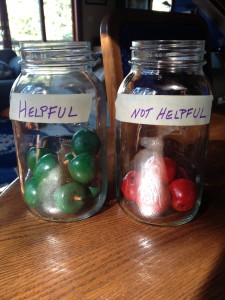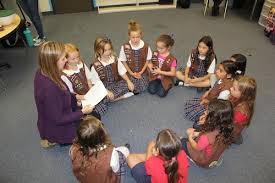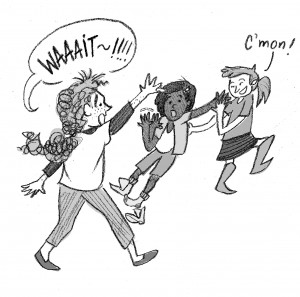|
|
April 9, 2018
 If not, what will I do without you? A minor disagreement with a best friend can be worked out with a simple, honest conversation. But a major disagreement, for example, one of you wants more time/closeness than the other, is tougher to resolve. You still need to talk about it. Sitting on feelings (like resentment and jealousy) only intensifies them. Intense feelings may lead you to doing and saying things you’ll later regret. Not good for you or the friendship.
Here’s a recent email from a girl who’s having a hard time dealing with jealousy in a friendship.
Teen: Me and my best friend have been close for quite a long time, but I know the friendship is on the verge of unhealthy. I value the friendship more than she does, which means I put way more effort into it. I get jealous whenever she spends time with other people. I’ve tried to step back and give her space, but I miss her already. I know that we can’t be friends like we used to be, but I don’t know how to stop these feelings. When the friendship ends she’ll move on with her other friends and I’ll be heartbroken. What do I do? Thanks 🙂
Annie: This friendship sounds a bit unbalanced. That’s not necessarily a bad thing. Sometimes one friend has a busier schedule than the other. That doesn’t mean she cares less than the one who has more free time. Sometimes both friends feel the need for “time together and time apart.” That gives both people a chance to explore other friendships and other interests. This can be a good thing even if it feels strange at first.
The real measure of friendship is not the amount of time. It’s how both people feel when they are together. It sounds like you feel unappreciated by your friend and jealous of how happy she is with other people. You said it yourself, “I value the friendship more than she does.” Yes, it seems that’s true. That’s a problem because it makes you feel powerless and unworthy. Like you don’t count.
Here’s something to think about: We can get so used to things in a friendship (who puts in more effort/who values the friendship more, etc.) that it all seems normal. There is nothing normal about feeling like you don’t count in a friendship! You count as much as much as she does. You deserve a friend who wants to be with you as much as you want to be with her. That doesn’t mean you two have to be together all the time or that neither of you can have other friends. It simply means that when you are together, you ought to feel accepted, respected and appreciated. If you don’t then it’s time for you to stand up for yourself. Either you can talk to her about her behavior or you can take her behavior as a clear sign that she is less interested in this friendship than you are.
If that’s the case, I’d suggest you go shopping for a new best friend.
Teen: That makes so much sense, thank you. I just don’t know how I’m gonna cope without her and I’m not exactly the kind of person who makes friends easily. Any tips?
Annie: First make a list to help you understand what qualities are important to you in a friend. Fill in the blank to this sentence:
I want a friend who is ___________________________.
Keep filling in the blank until you run out of ideas. This list will help you understand what you’re looking for and how to recognize it when you find it. Also, please know that a friendship is a two-way street. Make sure that you are able to give to a friend the same things you expect a friend to give to you.
Good luck!

September 16, 2015
 Was that really helpful or not so much? Imagine two empty glass jars. One labeled Helpful. One labeled Not Helpful. Imagine each time you say something to someone (online or off) you must put a marble in one jar or the other. By the end of the day which jar has more marbles?
Getting along with each other has always been a major challenge on this planet. Each day, each of us has the power to increase hostilities or increase feelings of friendship and cooperation at home, at school. Everywhere. It’s really that simple.
Think about the two jars with this hypothetical situation:
A group of kids sit at a lunch table with one empty seat. A new kid comes over carrying a lunch tray and asks “Can I sit here?” For each choice, which jar gets a marble, Helpful or Not Helpful?
Someone says “No way!” H or N
New Kid throws a french fry at someone. H or N
Someone lies and says, “Sorry, but I’m saving this seat for my friend.” H or N
New Kid lies and says, “No problem.” H or N
New Kid says, “I don’t want to sit with you. You’re mean.” H or N
Someone says “Sure” and makes room. H or N
Someone frowns but doesn’t move. H or N
Someone quickly puts her sweater on the empty seat. H or N
Someone says, “No weirdos at this table.” H or N
Someone laughs. H or N
Someone feels bad, but says nothing. H or N
Someone says, “Don’t be mean. Let her sit with us.” H or N
Someone whispers, “Why can’t she sit here?” H or N
Someone shrugs and says nothing. H or N
Someone pretends to text. H or N
Someone from another table and invites New Girl to sit with them. H or N
Now count your marbles. How many in each jar? What would you personally do in this situation? Not sure? That’s honest. Think about it some more. I understand this isn’t an easy question. Talk to your children. Your partner. Encourage your kids to talk to their friends. Share the idea of the two jars with them. We all agree that everyone wants to be treated with kindness and respect. That’s so clear. But when it comes to how we treat others, moment to moment, not so clear. Which jar are filling up today?
NOTE: I’m leading a series of Girls’ Friendship Without the Drama Workshops for the Girl Scouts and anyone else who wants to get a group of 15+ together to learn to be more helpful.

November 9, 2014
The Girls’ Q&A Book on Friendship blog tour is in Australia. Specifically at KeystoneCreations and the Sing to Learn blog of educator Nuala O’Hanlon. Because of the girl-friendship dynamics she sees at school everyday, Nuala has some pointed, in-the-trenches questions for me. Like this one…
Nuala: As a teacher, I see how mean and hurtful girls can be to each other at this age. How would you go about dealing with girls who are in the same class, can’t stand each other, and are mean to each other at every opportunity?
 Let’s talk about this together Annie: You haven’t said how old the girls are, but if they are at least 2nd grade, the first step would be to have a community circle with all the girls in the class… those who you see as “part of the problem” as well as those who are not contributing to the nastiness. The goal of this meeting is not to vent about past hurts. As facilitator, you must make sure that doesn’t happen. The goal is to engage girls in the process of finding solutions moving forward.
You might open the circle meeting by saying, “I’ve been noticing certain behaviors in our class that make me very sad. I see girls not letting other girls play or sit with them at lunch. I see girls pushing other girls away with their words and with certain expressions on their faces. I see girls talking in unfriendly ways about girls behind their backs. This is a problem for everyone in the class. Because I know you girls are very smart, I thought I’d ask for your ideas of how we can make our classroom a friendlier place.”
Be patient. Be calm. Exude confidence in the girls’ ability to be creative-problem solvers. Make sure you provide every girl a chance to share ideas for making things more peaceful. Take notes on a white board as the girls brainstorm. End the meeting with action steps to begin the next day.
If this doesn’t improve the situation, I’d suggest you get parents involved along with the school counselor.
Read the rest of my Q&A with Nuala.
Teachers, what are some of your classroom challenges with girl friendship issues?

April 27, 2013
UPDATE (See end of blog for exciting news about my new book.)
Last month I started working on a new girls’ friendship book with awesome illustrator Erica De Chavez.
If you have a daughter, you don’t need me to tell you that girl friendships can be super complicated and fraught with challenges for girls and their moms! When things get sticky, kindness and respect often go missing in action and feelings get hurt all around.
Since 1997, girls from all over the planet have been turning to me for help in navigating their friendship messes. I guess that makes me an expert on social garbage. The girls who email me are tweens and teens. But I thought, if I write a book to help younger girls, maybe they will have easier friendships when they get to middle school. We can always hope, right? But hope is no strategy for making things better. What our girls need are effective tools for managing conflicts. Combine those tools with the self-respect and social courage to use them… now we’re talking about effective strategies for positive change.
Here’s a sneak peek at the book:
Q: Every time me and my friend have a private conversation, this new girl pulls her away. What do I do??
A: I don’t blame you for not wanting your private conversations interrupted. That’s so annoying! It sounds like the new girl has lots of power, but she doesn’t have all the power. If your friend didn’t want to get pulled away she could tell the girl to stop. She hasn’t done that yet. And you haven’t yet told your friend how you’ve been feeling.
Real friends tell each other the truth. Talk to her. You might say something like this: “I don’t like it when ____ pulls you away from me. How come you let her do that?” Then close your mouth and listen to what your friend has to say.
The next time the new girl tries to yank her away, your friend will either stand up for herself or she’ll let herself be yanked. That’s her choice. One more thing you might think about: Why is the new girl snatching your friend? It’s not always easy being the “new girl” who doesn’t have friends yet. I think that would feel LONELY! She probably just wants a friend and doesn’t know a more polite way to make one. Maybe you and your friend could team up with her and be friends together. That could work!
Anyway, the snatching stuff needs to stop. So talk to your friend. If things don’t change, what are you going do? You can either stand there watching the two of them go off together or you can reach out to other girls and make some new friends. You see, you have choices too!
______________
Sneak peek #2 and sneak peek #3 of the Girls’ Friendship Q&A Book.
UPDATE: July 22, 2014 After a year in production, The Girls Q&A Book on Friendship will be published by Electric Eggplant in September. Just in time for the new school year and the inevitable friendship drama heading toward your 8–12 year old daughter. Every girl needs friendship support from time to time. My book provides that plus:real world advice for navigating through the “social garbage,” friendship quizzes, and advice from older girls about how to be a Super Friend. If you’d like to preorder The Girls Q&A Book on Friendship for a girl in your life, or you’d just like a personal heads-up when the book is available, email me (Connect@AnnieFox.com).
UPDATE: October 3, 2014 It’s here! The Girls Q&A Book on Friendship: 50 Ways to Fix a Friendship Without the DRAMA is now available in print and on Kindle (the ebook can be read on any device, your mobile phone, tablet, or computer with the free Kindle reader app). Visit GirlsQandA.com for an excerpt, reviews, and to order your copy.

| |















